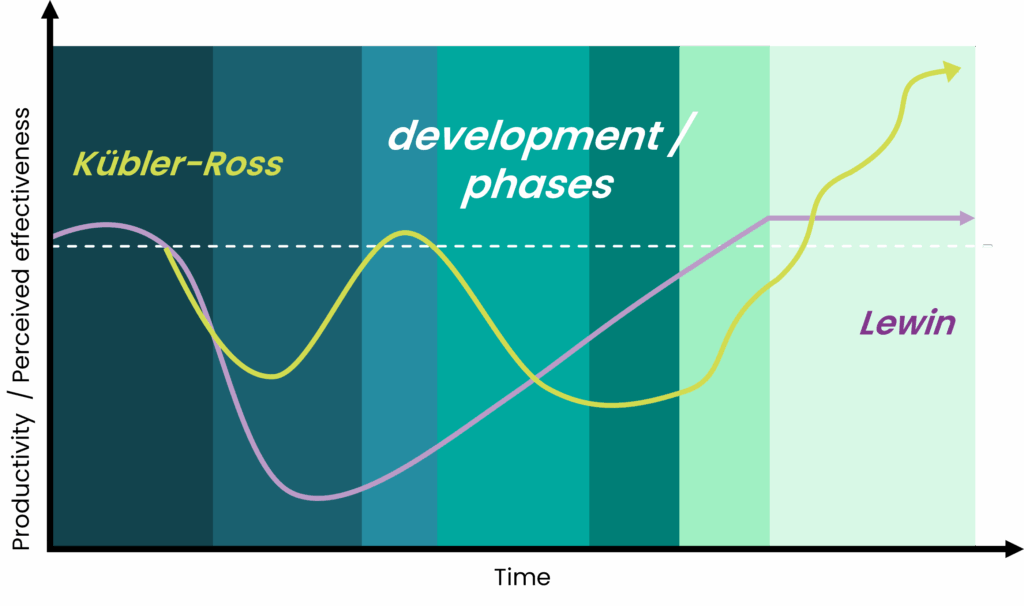Key Success Factors of IMAP Change Support
Steering
The start of any change should be preceded by a support concept that synchronizes all initiatives to institutionalize the new ways in the organization and assess their impact, complemented by a visionary “change story” that serves as a communication guide.
Participation of the Leadership Team
Involving the (extended) leadership team already in the design phase of the change not only leads to greater commitment but also ensures that, through diverse perspectives and broad organizational knowledge, the concept and its communication remain relevant and well-connected.
Employee Participation
Even later, during the implementation phase, participation formats involving an extended group of affected individuals remain an effective way to identify and address barriers and resistance early on.
Qualification
The “liminal phase” of transformation (“no longer / not yet”) presents unique challenges for leaders, which they can be prepared for through training and coaching.
Information
Already before and at the start of the implementation phase, stakeholder-appropriate communication campaigns are the most important tool to counteract uncertainty and the typically ongoing spread of misinformation. Credibility and the ability to engage in dialogue are especially crucial for early recognition of the reasons for and benefits of the change.



















































